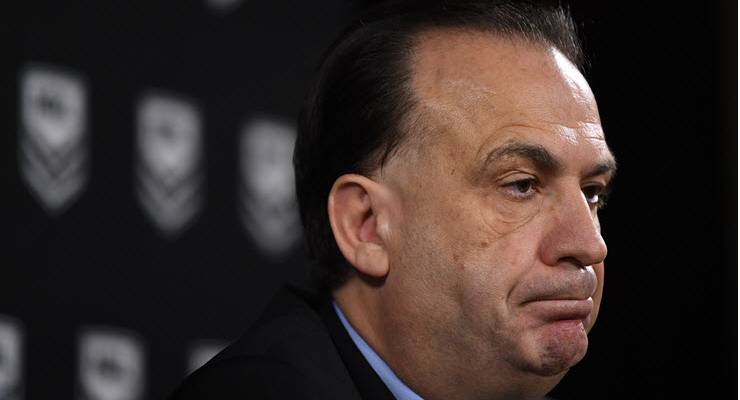
If you thought lack of political leadership was a problem, the dearth of business leadership is exposing the difference between self-interest and the national interest.
Surprisingly it’s not the usual suspects. With the exception of profiteering petrol companies, perhaps.
Banks and supermarkets for once are not the most-loathed behemoths, but instead are being lauded for their efforts at the front lines of the crisis.
Around the globe it is a similar story. The car company execs that were the villains of the global financial crisis for taking their corporate jets to ask for a bailout are now converting their factories to supply vital ventilators.
Perhaps the greatest PR turnaround goes to the most loathed of all industries — with news that tobacco giant British American Tobacco is helping with vaccine efforts by using its extensive testing facilities. They certainly have experience in finding out what is toxic to humans.
Then there is the other side: management who have not stepped up to the plate, starting with certain sporting code chiefs.
Australian Rugby League chair Peter V’landys won the early tin ear race in the first days of the crisis with his hand out for a government handout. He apparently struck out, thank goodness.
Learning nothing, Collingwood president Eddie McGuire gave another belligerent performance this week resorting to the “we’re all in this together” excuse for not answering specific questions on whether the club would hand back membership fees to those who are struggling.
Transurban bucked the trend of health companies freezing premiums, instead going forward with a price hike on Sydney tolls claiming it was for the good of the economy.
And don’t forget Qantas CEO Alan Joyce’s desperate attempts to kill Virgin Australia when he demanded governments not bailout “badly managed companies”, conveniently forgetting his own vain attempts to have the Abbott government guarantee a $3 billion loan when his own airline was in trouble. Qantas is now under ACCC investigation over its behaviour during this crisis.
Early on, retailer Gerry Harvey was rightly criticised for his apparent boasting of making profits and downplaying health concerns. Within days he apologised and explained the interview was done well before the government crackdown.
With events moving at warp speed, it was an abject lesson in not speaking too soon or perhaps not speaking at all unless you have something constructive to add.
Now one is loathe to criticise at this delicate time, but given News Corp Australasia executive chair Michael Miller has blamed government policies for media closures, maybe his own columnists will get the memo that it is, in fact, OK to be critical of the government.
The real worry with the lack of business leadership is to whom the struggling government will turn for crucial advice on bringing the economy out of its self-induced coma.
The Business Council of Australia has not been a bastion of leadership for years so presumably will just renew calls for corporate tax cuts or follow Tony Shepherd’s predictable call for less regulation as the answer.
Incredibly this week one name that popped up as advising the treasurer on the crucial JobSeeker plan was Premier Investments’ Solomon Lew.
This is the billionaire whose idea of business leadership was to be first to publicly refuse to pay rent on his stores thus causing a damaging ripple effect.
This is the billionaire who had been in dispute with said landlords for years and used a major medical and economic crisis to ramp up the campaign.
So not a pariah, but a trusted government advisor.
What next? Will we see Treasurer Josh Frydenberg’s other great mate Justin Hemmes, he of the overstretched hotel and restaurant empire, advising on hospitality payment issues?
Or will we be hailing longtime China apologist Andrew ‘Twiggy’ Forrest for bringing in tonnes of medical supplies from the country that looted them from us only a few months ago.
Don’t worry, I’m sure they all have our best interests at heart.








“publicly refuse to pay rent on his stores thus causing a damaging ripple effect.”
What damaging ripple effect is this supposed to be referencing?
Journalism that feigns disbelief for having sold them off-the-shelf medical equipment we obviously weren’t interested in using, most likely for a nice profit, and calling it ‘looted’ is part of the problem we have with our media, including Crikey.
Reads like ‘fair dinkum Aussie’ racism to me.
Like it or not, crises have traditionally produced reckonings in business as well as hardship and opportunity. Joyce has been persuaded to see our feds as a soft touch since we bailed out Qantas without demanding equity or employment guarantees or major reductions in exec total payments. Why wouldn’t he push his luck re his main competitor ?
Mr Lew is not the nicest of people but he’s at least been a big reminder of the long term disastrous results of excessive land price inflation. I still live in hope for a large and sustained fall in land values complements of restrictions on foreign ownership, borrowing requirements and tax reforms.
Buying and selling medical equipment is generally regarded as trade unless legislated otherwise. We’ve heard some ridiculous pronouncements elsewhere lately. Apparently water rights traders will be hounded and prosecuted under non existent laws as will grocery shoppers.
We have too as a species move away from profit and possessions being the most important thing. A healthy fair society is more important by far
The only reason why Peter V’landys looks tin eared is because his request was rejected. Had he succeeded, I’ll bet people would be using different words to describe him.